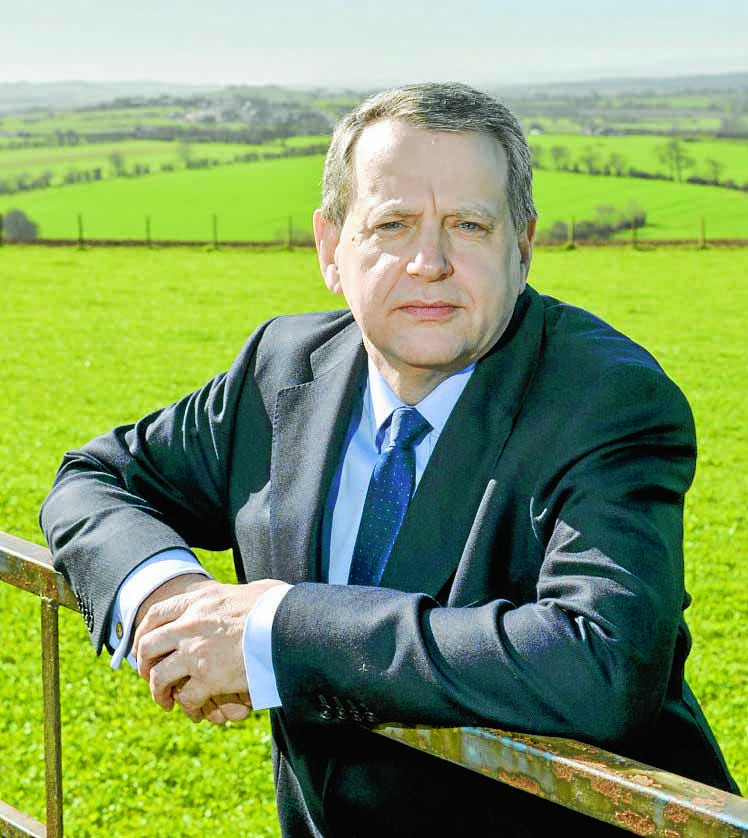“While everybody has undoubtedly had a difficult year, I have seen how farmers have had to be more resilient than usual. Starting off the year with record-breaking floods, followed by periods of very dry weather in the spring, it was soon clear that 2020 was going to be the year to really test everyone.
Then the coronavirus pandemic came, initially disrupting farming operations and just-in-time supply chains. Never will we forget the images of thousands of litres of milk being wasted and going unused, as cafes and restaurants went into lockdown and the hospitality sector demand was put on hold. Nor will we forget the impact on beef prices, with the foodservice market for highest value cuts collapsing overnight. Yet, the agricultural sector has displayed remarkable resilience, and in typical farming fashion, quickly recovered by adjusting to a new way of doing things to keep shelves filled.
It could be that this 2020 cycle of disruption and recovery is a glimpse of what is to come. We are now at a turning point for UK agriculture, with the Brexit and climate agendas coming together at once. As farming goes through this huge transition, the scale of necessary and inevitable change cannot be overestimated. There is no doubt the years ahead of us will have their ups and downs.
However, we now know that preparing for potential shocks is key to an adequate response. So to keep the industry resilient, we should heed the lessons of the last nine months and take steps to adjust ahead of time.
It’s clear that taking action in the present will ensure better outcomes in the future. Rather than racing to catch up with climate change further down the line, getting ahead now by putting in place Net Zero plans is what the opportunity of this moment presents.
This year has taught us that sometimes there is no choice, but to adapt. With Brexit, 2021 must be about keeping pace and making space for this inevitable change. This means grasping the many opportunities to move farming into the 21st century. For example, agri-technology can pave the way for new forms of knowledge-sharing among farmers. Big data can drive breeding programmes and productivity, and using new technology can help meet the Net Zero 2040 target. Digital forums and tools can also strengthen farmers’ skills, and facilitate participation in the debate.
While there are many challenges, the UK food and farming industry has much to gain from this new agricultural landscape. Post-Brexit, farmers will be able to benefit from new environmental grants and targeted support to meet productivity goals. There will be new technologies and new ways of growing food, with regenerative farming and market driven production systems becoming more mainstream. Our younger generation are a great hope, with many new ideas yet to be imagined. So, this coming year is the chance to reset the sector, with a resolution to put food security and the domestic supply of great quality food at the centre of farming.
UK farms have shown greater resilience than most other businesses, even while global food supply chains remain fragile. Yet, as climate change threatens the reliability of harvests, it is clear that the 2020s will push farmers to adapt their operations. So, while we don’t know what the next decade has in store, the sector must come together to plan and build resilience into the system to ensure farming’s future.
The lesson of Covid-19 is to be prepared for uncertainty, and to strengthen the flexibility of our domestic agri-food market. This ability to adjust and respond to external shocks will be vital to developing homegrown strategies, fit for this new era of farming.
While there will be some big challenges ahead, I do have confidence that the sector can adapt.”
























